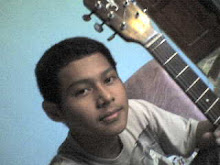Direct Speech refers to reproducing another person’s exact words or saying exactly what someone has said (sometimes called quoted speech).We use quotation marks (“______________”) and it should be word for word.
For example:
Nicky said, “It’s hot”.
Or
“It’s hot,” Nicky said.
 Indirect speech refers to reproducing the idea of another person’s words that doesn’t use quotation marks to enclose what the person said and it doesn’t have to be word for word.
Indirect speech refers to reproducing the idea of another person’s words that doesn’t use quotation marks to enclose what the person said and it doesn’t have to be word for word. Indirect speech is sometimes called reported speech.
The tense usually changes when reporting speech. This is because we are usually talking about a time in the past and obviously the person who spoke originally spoke in the past.
The verbs therefore usually have to be in the past too.
▪ Note: The reporting verbs that are usually used to report imperative sentences are: Tell, order, command, ask, warn, remind |
▪ Don’t forget to mention the indirect object. Father warned me not to drive fast. |
For example:
Direct speech Indirect speech
Present simple Past simple
Vita said, “I eat fried rice”. Vita said that she ate fried rice.
Past simple Past Perfect
Mother said, “I went to market yesterday”. Mother said (that) she had gone to market the day before.
Future simple Past Future
Lea said, “I am going to wash my clothes”. Lea said (that) she was going to wash her clothes.
Dave said, “I will buy an I-Pod next week”. Dave said (that) he would buy an I-Pod the week after.
Present continuous Past continuous
Gama said, “I am playing football”. Gama said he was playing football.
Past continuous Past perfect continuous
She said, “I was teaching earlier.” She said she had been teaching earlier.
In time expressions and pronouns
Direct speech | Indirect speech |
Now Today/tonight Yesterday Tomorrow Last week Next week Ago | Then That day/that night The day before/the previous day The next/following day The previous week The following week/the week after Before |
This/these Here Pronouns | That/those There They change according to the context |




